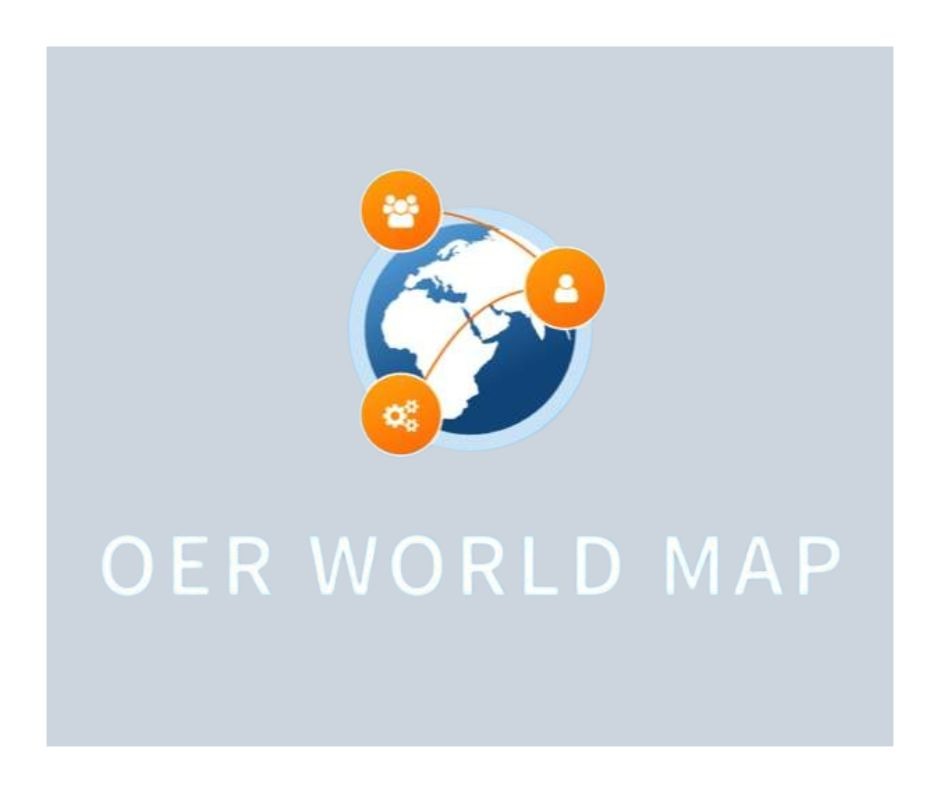The OER World Map is the place on the internet where everyone can expand their knowledge of OER initiatives, share information and experiences and collect data. After almost two years the OER World Map is now online again. It is being promoted today as part of the kick-off conference of the series “OER at a glance: Promoting – Networking – Developing”at which, among other things, the projects of the OE_COM funding guideline will be welcomed.

Join in
Anyone can access the information on the OER World Map and contribute to the collection and exchange. Search the OER World Map for services and tools, make yourself and your work visible or collect data for your research or to inform decision-making processes.
Find the work of others
Search the map for information on services to find suitable OER that ensure inclusive and equitable quality education and promote lifelong learning opportunities for all. Or discover tools to create and share your work. Find events to expand your knowledge or search for a project in a specific region, research area or education sector.
Make your own work visible
Share your own work as an open educator, researcher or policy maker and make your services, tools or events more visible or let others discover your project website. Add information about people, organizations or networks to enable knowledge graphs. Others can look you up and interact with you to learn from what you are working on.
Get an overview of the OER landscape
Collect data on specific regions or topics to facilitate your research or find arguments to support decision-making processes. Find guidelines from other institutions and get in touch with their creators.
Open source software and the involvement of the community
As part of our ongoing development, we pursue an open development process that allows the entire program code to be publicly accessible on GitLab. This not only ensures transparency, but also enables all interested parties to participate in the development process. In addition, only software components that meet the criteria of free software are used.
The platform developed by the University Library Centre of North Rhine-Westphalia (hbz) and operated until 2022 served as the starting point and requires extensive adaptations, modernizations and extensions. Thanks to the consistent open source approach and close cooperation with the community, important foundations could already be laid in the initial phase.
 Dieser Text steht unter der CC BY 4.0-Lizenz. Die Namen des Urheber*innen soll bei einer Weiterverwendung wie folgt genannt werden: Susanne Grimm, DIPF – Leibnizinstitut für Bildungsforschung und Bildungsinformation und Sebastian Wagner, Intevation für OERinfo
Dieser Text steht unter der CC BY 4.0-Lizenz. Die Namen des Urheber*innen soll bei einer Weiterverwendung wie folgt genannt werden: Susanne Grimm, DIPF – Leibnizinstitut für Bildungsforschung und Bildungsinformation und Sebastian Wagner, Intevation für OERinfo

